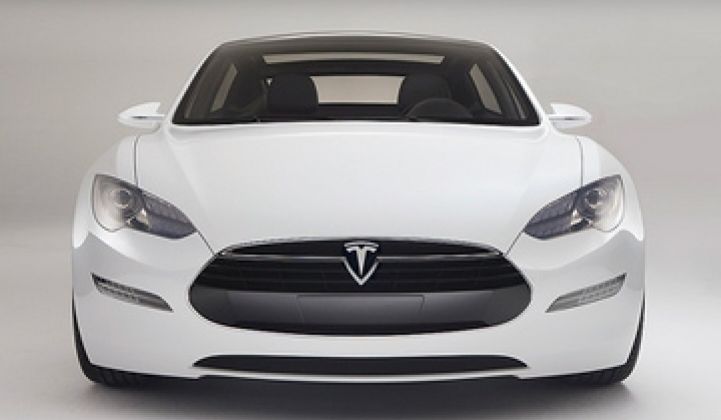Tesla Motors is already a cult hit in North America and Europe, so the next step is Asia.
The electric automaker will enter the Asian market next year, said CEO Elon Musk in an interview, an expansion partly paved by a version of the car now under development where the driver operates the vehicle on the right side and drives on the left side of the road.
"We will have right-hand drive by early next year," he said. "The final development will be done in a month or so."
The right-hand drive version of the car will first be sold to customers in Britain with sales in other right-hand drive countries like Singapore, Japan, Australia and Hong Kong to follow.
Despite the fact that it has only sold fewer than 1,000 cars, Tesla is one of the most watched cars in the auto industry. It played an instrumental role in reviving the idea of electric cars, something that nearly every major car company now says will constitute a part of their future plans.
Second, everyone in Silicon Valley and the auto industry has a burning opinion about the company's future. Will Tesla collapse in a financial miasma? Will the slow pace of traditional automanufacturers allow Tesla to become a mainstream brand with the Model S arriving in 2011? Will the emergence of batteries from third-party suppliers eliminate any early advantage of Tesla and Fisker Automotive and return control back to the mass manufacturers and their armies of engineers and designers? (Personal theory: It will become the electric brand for Daimler-Benz, sort of how Mini is the sporty economy badge for BMW.)
The Frankfurter Allgemeine, Germany's main business newspaper, put Tesla on the cover for its first-day coverage of the Frankfurt International Auto Show, despite the fact that home-country heroes like Audi, Volkswagen and Mercedes unveiled their own all-electric cars the same day that will compete directly against Tesla when they arrive in 2012 and 2013. (This interview with Musk took place during the Frankfurt Auto Show.)
Musk said he welcomes the competition and hopes to see more electric cars, but notes that the major auto manufacturers have moved somewhat slowly.
"You can't drive a press release and you can't drive a concept car. You need a production car," he said. "It is a little disappointing that Tesla is still the only company that has a freeway-capable electric car for sale. I mean, c'mon, guys."
By next year, more electric cars will be on the road and by 2020, between 10 percent and 20 percent of the new cars sold will be electrics, he predicted. Carlos Ghosn, CEO of the Renault-Nissan alliance, says 10 percent of his company's cars will be electric by then. Volkswagen, which has its first all-electric coming in 2013, puts the figure closer to 2 percent and is putting a greater emphasis on clean diesel.
So why are many major manufacturers moving relatively slowly? Chalk it up to the Innovator's Dilemma.
"Big companies have a hard time embracing revolutionary change. Why isn't IBM a leader in PCs? They were in mainframes," he said. "The car companies are always jostling for small changes in market share from one year to the next and are competing on little nuances of styling. But they've run out of things to compete on and they compete on trivialities.
"They need to pay attention," he added. "The transformation to electric is the biggest thing in the auto industry since the moving production line."
Musk also said lithium-air batteries, the high-density lithium batteries that IBM and others are working on "would be super cool if [they] can be made to work."
Image courtesy Tesla Motors.



